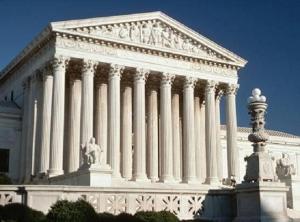Recently, I wrote about new House Bill 903, the Economic Redemption and Restoration of Constitutional Rights Act. If passed, this law would authorize certain convicted felons to petition for constitutional or civil rights to be restored in the circuit court of the county in which the felon resides or in the county where the felon was convicted. At that time, a class-action lawsuit, Hand v. Scott, was pending against Gov. Rick Scott, the Clemency Board, and six other state officials, including the Secretary of State and the Department of Corrections Head. The lawsuit was filed by the Fair Elections Legal Network “FELN,” on behalf of nine former felons.
 According to the FELN, Florida is one of four states that denies the right to vote to all former felons until they petition for rights restoration, and 1.68 million Floridians currently do not have the right to vote due to a felony conviction (the highest state total in the nation). Over 10,000 are waiting for a hearing on their restoration applications. If no new applications were submitted, it would take the Clemency Board almost 51 years to hear the entire backlog of applicants.
According to the FELN, Florida is one of four states that denies the right to vote to all former felons until they petition for rights restoration, and 1.68 million Floridians currently do not have the right to vote due to a felony conviction (the highest state total in the nation). Over 10,000 are waiting for a hearing on their restoration applications. If no new applications were submitted, it would take the Clemency Board almost 51 years to hear the entire backlog of applicants.
As cited from a FELN press release:
“The lawsuit cites the lack of any rules governing the Executive Clemency Board’s decisions to grant or deny applications. Without any rules, the system and the applicants are prone to arbitrary treatment, violating the 1st and 14th Amendments to the U.S. Constitution, according to the lawsuit. The lawsuit also challenges both the lack of any time limits for making decisions on restoration applications – another violation of the 1st Amendment – and the 5- and 7-year post-sentence waiting periods Governor Scott imposed. Giving government officials unfettered discretion, according to the complaint, leads to unequal treatment of people in similar circumstances Florida’s arbitrary rights restoration process violates the U.S. Constitution and hinders former felons from truly reentering society. To remedy this violation, the lawsuit seeks the automatic restoration of the rights of the plaintiffs and other former felons who have served their full sentences including parole and probation.”
On February 1, 2018, United States District Court Judge Mark E. Walker ruled Florida’s voting rights restoration scheme violates the First Amendment rights of free association and free expression, and the Fourteenth Amendment of the United States Constitution. Judge Walker ordered briefs from the parties on the appropriate remedy.
In the Order Granting the Plaintiff’s Motion for Summary Judgment, Judge Walker stated:
“In Florida, more than 154,000 citizens had their voting rights restored during the last gubernatorial administration’s four years. Since 2011, a period of seven years, that figure has plummeted—less than 3,000 people have received restoration. The context of these numbers is not lost on this Court. More than one-tenth of Florida’s voting population—nearly 1.7 million as of 2016—cannot vote because they have been decimated from the body politic. More than one in five of Florida’s African American voting-age population cannot vote. If any one of these citizens wishes to earn back their fundamental right to vote, they must plod through a gauntlet of constitutionally infirm hurdles. No more. When the risk of state-sanctioned viewpoint discrimination skulks near the franchise, it is the province and duty of this Court to excise such potential bias from infecting the clemency process.”
For assistance with the process of civil right restoration, you need an experienced Jacksonville criminal lawyer to help navigate the law. Call the Law Office of David M. Goldman, PLLC, for information and a consultation.
 Jacksonville Criminal Defense Lawyer Blog
Jacksonville Criminal Defense Lawyer Blog

